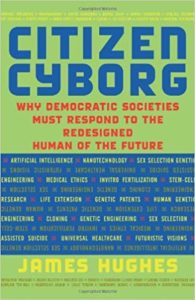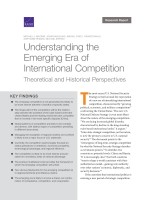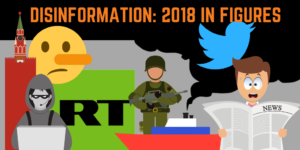 Artificial intelligence systems are showing their potential for abetting repressive regimes and upending the relationship between citizen and state, accelerating a global resurgence of authoritarianism, notes Steven Feldstein, a nonresident fellow in Carnegie’s Democracy, Conflict, and Governance Program.
Artificial intelligence systems are showing their potential for abetting repressive regimes and upending the relationship between citizen and state, accelerating a global resurgence of authoritarianism, notes Steven Feldstein, a nonresident fellow in Carnegie’s Democracy, Conflict, and Governance Program.
 AI is not the only category of new technology increasingly harnessed by autocrats for political gain. Other communications and information technologies, frequently used in tandem with AI, are having equally alarming effects. These include advanced biometrics, state-based cyber hacking, and information-distortion techniques, he writes for the NED’s Journal of Democracy. The article highlights the repressive impact of AI technology in two respects:
AI is not the only category of new technology increasingly harnessed by autocrats for political gain. Other communications and information technologies, frequently used in tandem with AI, are having equally alarming effects. These include advanced biometrics, state-based cyber hacking, and information-distortion techniques, he writes for the NED’s Journal of Democracy. The article highlights the repressive impact of AI technology in two respects:
- First, AI provides a higher-order capability that integrates and enhances the functions of other technologies in startling new ways.
- Second, mainstream understanding of the policy impact of AI technology remains limited; policy makers have yet to grapple with AI’s repressive implications….RTWT
A more optimistic take comes from James Hughes, the executive director of the Institute for Ethics and Emerging Technologies, who argues for “democratic transhumanism.” The best possible “post-human future” is achievable only by ensuring that human enhancement technologies are safe and made available to everyone, he argues in Citizen Cyborg: Why Democratic Societies Must Respond To The Redesigned Human Of The Future.
 Value-sharing democracies are confronting competitors who combine economic competition, intelligence operations, cyber meddling, political manipulation, information campaigns, and many other tools in ways that democracies are institutionally (and sometimes constitutionally) incapable of matching, says a new RAND report, Understanding the Emerging Era of International Competition. The challenge, from China at least, is unique among current challengers: This is the single case in which the United States confronts a highly competent, economically dynamic country that, at least in theory, can employ every actor in the society as part of a coordinated strategy…..RTWT
Value-sharing democracies are confronting competitors who combine economic competition, intelligence operations, cyber meddling, political manipulation, information campaigns, and many other tools in ways that democracies are institutionally (and sometimes constitutionally) incapable of matching, says a new RAND report, Understanding the Emerging Era of International Competition. The challenge, from China at least, is unique among current challengers: This is the single case in which the United States confronts a highly competent, economically dynamic country that, at least in theory, can employ every actor in the society as part of a coordinated strategy…..RTWT

Credit: EU Stratcom
China’s ‘Digital Silk Road’ is looking more like an Iron Curtain, Bloomberg reports, suggesting that Beijing has provided a platform for disinformation campaigns in Myanmar and other countries.
In order to counter disinformation, numerous countries are experimenting in developing a comprehensive strategic approach, adds Tara Tepavac, a Senior Researcher at the Centre for Research, Transparency and Accountability (CRTA). Government task forces are being formed, new regulations are being debated and new initiatives by tech companies are being launched, she writes:
However, a comprehensive solution cannot be achieved without long-term support to fact-based, reliable media – combined with efficient and reliable fact-checking initiatives – and systemic support in raising media literacy of citizens through tailored training, particularly that of the younger generations. Educating citizens, empowering them to recognize fake news and rebuilding their trust in people, politicians, society and democratic systems is the key for getting ahead in building resilience to disinformation.
A special edition of the EU East StratCom Task Force’s Figure of the Week (above) reviews how Russian influence operations sought to divide societies in 2018 and how Western countries hit back.







